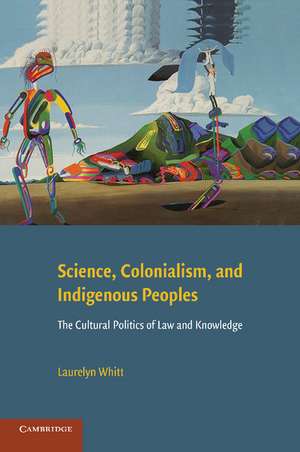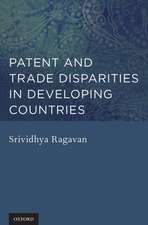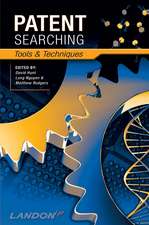Science, Colonialism, and Indigenous Peoples: The Cultural Politics of Law and Knowledge
Autor Laurelyn Whitten Limba Engleză Paperback – 30 apr 2014
| Toate formatele și edițiile | Preț | Express |
|---|---|---|
| Paperback (1) | 284.78 lei 43-57 zile | |
| Cambridge University Press – 30 apr 2014 | 284.78 lei 43-57 zile | |
| Hardback (1) | 726.74 lei 43-57 zile | |
| Cambridge University Press – 23 aug 2009 | 726.74 lei 43-57 zile |
Preț: 284.78 lei
Nou
Puncte Express: 427
Preț estimativ în valută:
54.49€ • 57.04$ • 45.36£
54.49€ • 57.04$ • 45.36£
Carte tipărită la comandă
Livrare economică 31 martie-14 aprilie
Preluare comenzi: 021 569.72.76
Specificații
ISBN-13: 9781107675070
ISBN-10: 1107675073
Pagini: 284
Ilustrații: black & white illustrations
Dimensiuni: 152 x 229 x 15 mm
Greutate: 0.38 kg
Editura: Cambridge University Press
Colecția Cambridge University Press
Locul publicării:New York, United States
ISBN-10: 1107675073
Pagini: 284
Ilustrații: black & white illustrations
Dimensiuni: 152 x 229 x 15 mm
Greutate: 0.38 kg
Editura: Cambridge University Press
Colecția Cambridge University Press
Locul publicării:New York, United States
Cuprins
Part I. Biocolonialism as Imperial Science: 1. Imperialism then and now; 2. Indigenous knowledge, power and responsibilities; 3. Value-neutrality and value-bifurcation: the cultural politics of science; Part II. The Human Genome Diversity Project: A Case Study: 4. The rhetoric of research justification; 5. Indigenist critiques of biocolonialism; Part III. Legitimation: The Rule and Role of Law: 6. The commodification of knowledge; 7. Intellectual property rights as means and mechanism of imperialism; 8. Transforming sovereignties; Conclusions: the politics of knowledge: resistance and recovery.
Notă biografică
Descriere
Examines how contemporary relations between indigenous and Western nations are shaped by the dynamics of power, the politics of property, and the apologetics of law.













